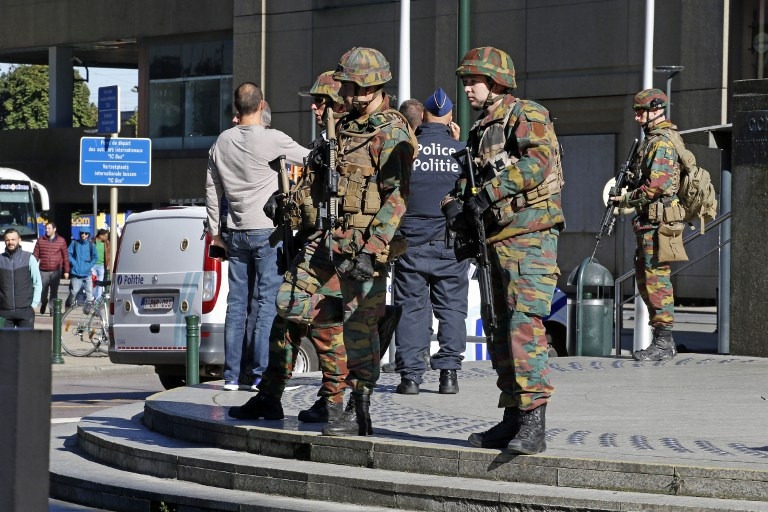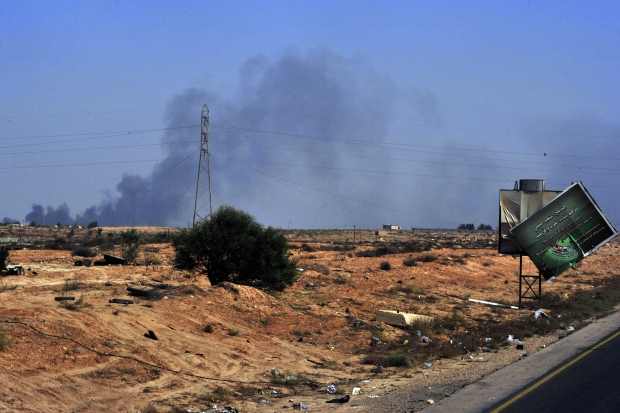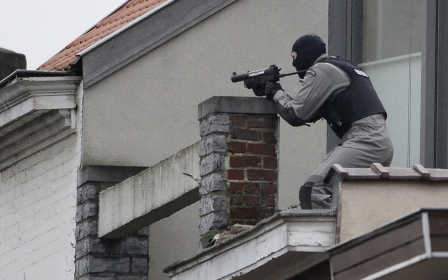IS may target Europe using lethal car bombs, says Europol

IS and other militant groups are improving their tactics to attack soft targets in Europe, which could include the use of deadly car bombs, Europol said on Friday.
Attacks on European states have not yet involved "the use of home-made, commercial or military explosives in vehicle-borne improvised explosive devices" as in Syria or Iraq, the EU law enforcement agency said in a report issued in The Hague, AFP reported.
Europol added that since the methods used by militant groups in the Middle East tend to be imitated by others operating in Europe, “it is conceivable that (fighter) groups will use this means at some stage.”
One year ago, the group responsible for attacks in Brussels in March 2016 wanted to deploy such devices, until police actions forced them to change their plans, the 14-page report said. Suicide bombers attacked Brussels airport and a metro station near the European Union headquarters on 22 March, killing 32 people.
Months earlier, in November 2015, militants killed 130 people in attacks on the Bataclan concert hall, a handful of bars and restaurants in eastern Paris, and France's national stadium.
The report added that counter-terror experts were concerned that strife-torn Libya could develop into a "second springboard for IS, after Syria, for attacks in the EU and North Africa".
Since the armed revolt that overthrew dictator Muammar Gaddafi in 2011, Libya has been plagued by violence and political instability.
"Experts expect that IS will start planning and dispatching attacks from Libya if the current phase, in which they are primarily focused on taking territory and dispatching of local enemies, comes to an end."
Tunisia plea
While concerns were raised by Europol regarding the security situation in Libya, Tunisian President Beji Caid Essebsi asked European states for more financial support to help him "face terrorism“, especially in Libya, which would in return help secure Europe’s southern border, according to reports.
During a speech to the European Parliament in Brussels on Thursday, he added that a "Marshal plan" should be implemented to convert Tunisia’s debts into investments and turn around its economy, which has been battered by militant attacks on its tourist sector.
Regional and Western countries promised Tunisia around $8 billion in aid and loans over the next four years, during a two-day investment conference in Tunisia, that ended on Wednesday.
The European Investment Bank (EIB) said it would lend Tunisia a total of 2.9 billion euros (3.09 billion dollars) by 2020, Reuters reported.
The Tunisian economy has taken a plunge following the 2011 revolution which toppled long-time autocrat Zine El Abidine Ben Ali and sparked the Arab Spring.
Tunisia recently cut its 2016 growth forecast to 1.5 percent from 2.5 percent. Its fiscal deficit for next year is projected to be 5.4 percent of national output.
New MEE newsletter: Jerusalem Dispatch
Sign up to get the latest insights and analysis on Israel-Palestine, alongside Turkey Unpacked and other MEE newsletters
Middle East Eye delivers independent and unrivalled coverage and analysis of the Middle East, North Africa and beyond. To learn more about republishing this content and the associated fees, please fill out this form. More about MEE can be found here.




